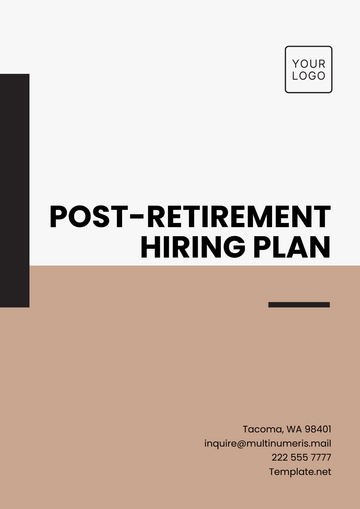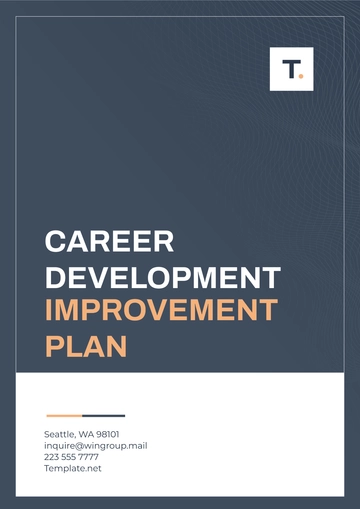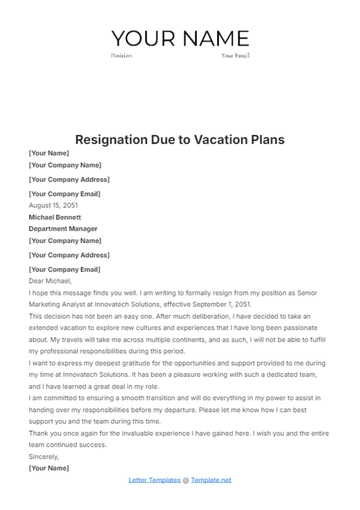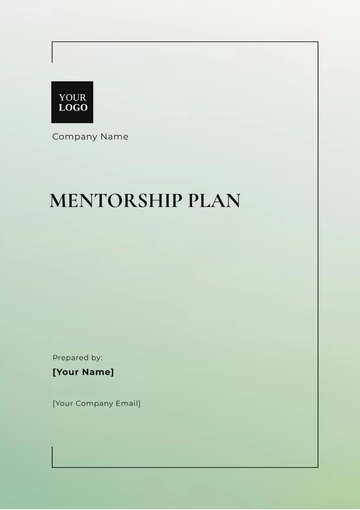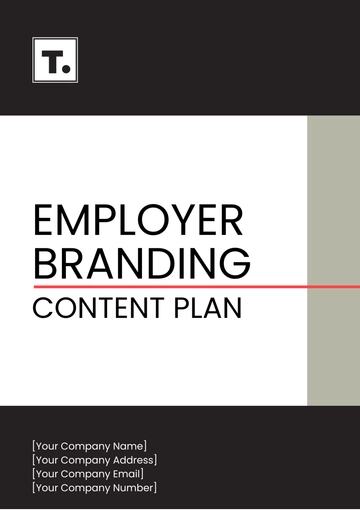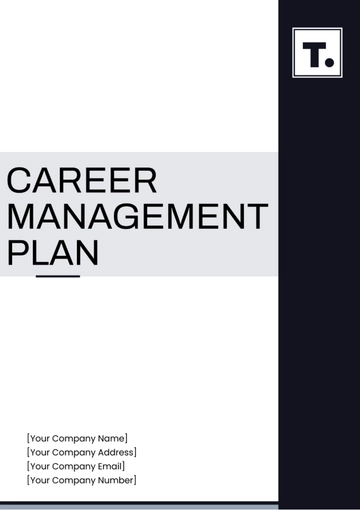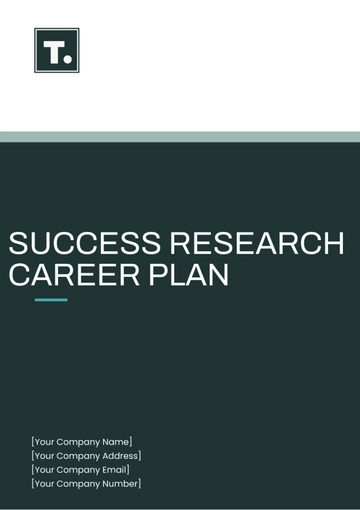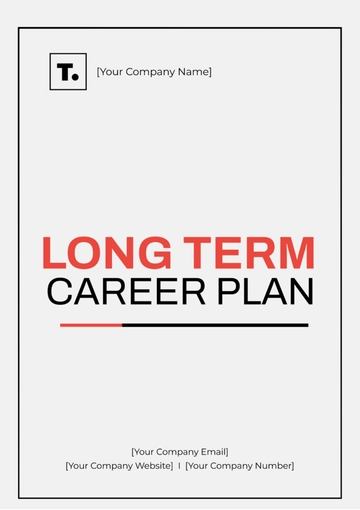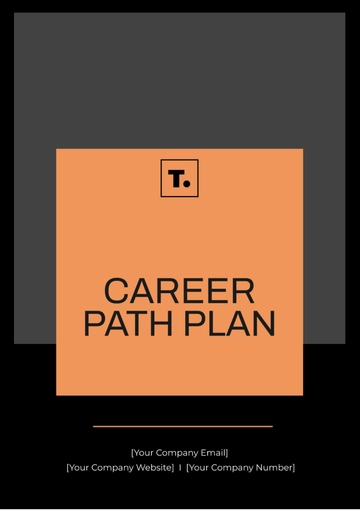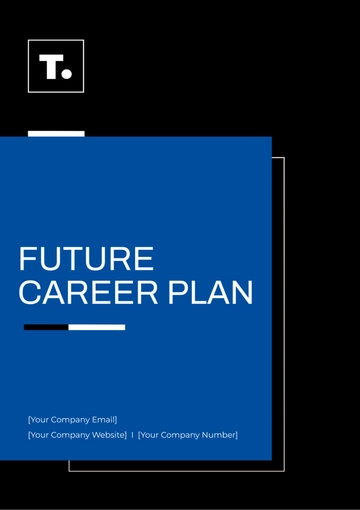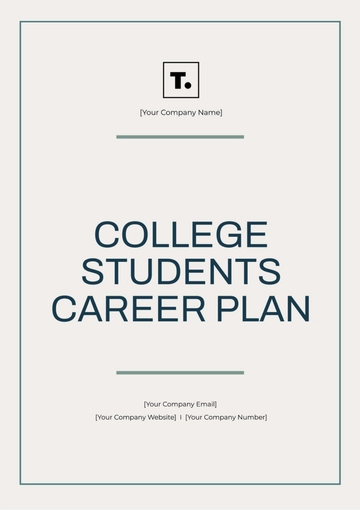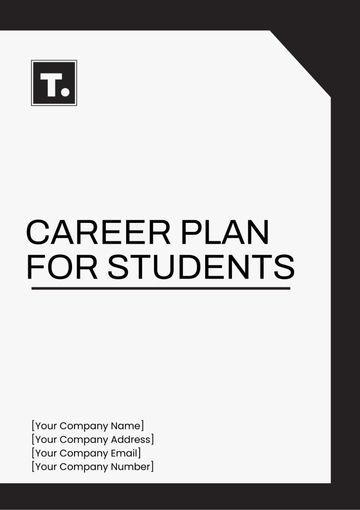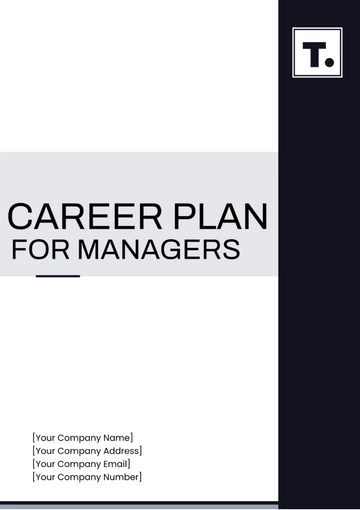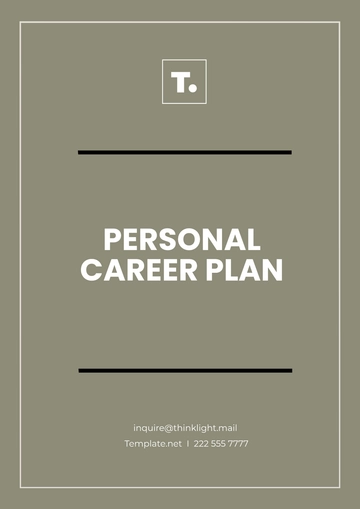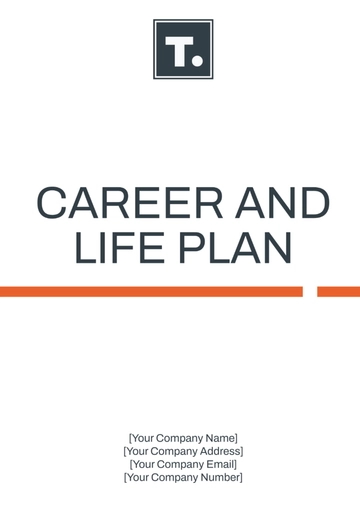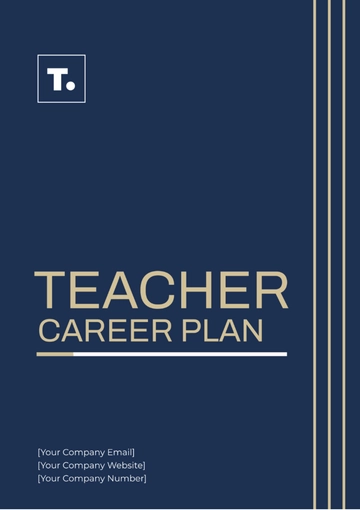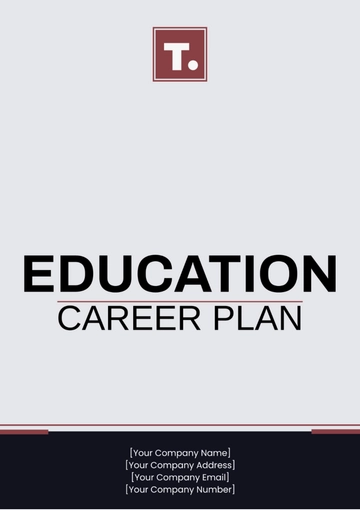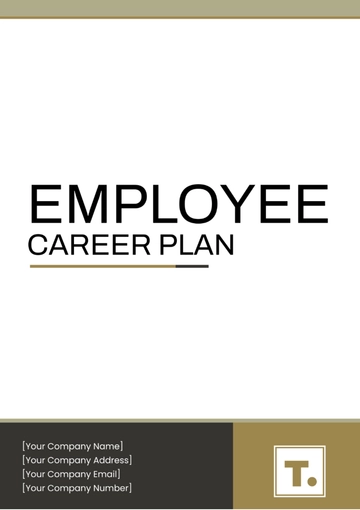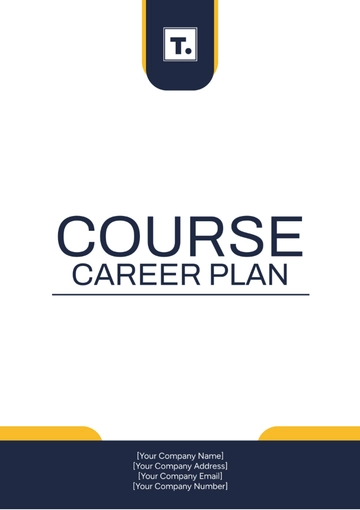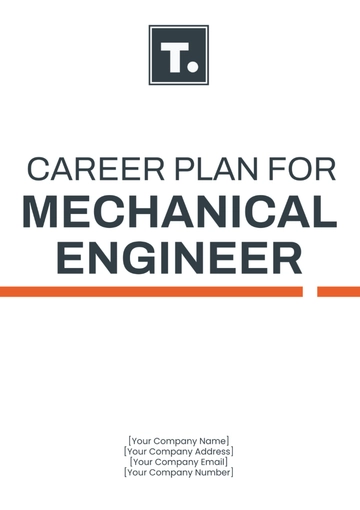Free Career Plan

Prepared by: [YOUR NAME]
I. Introduction
Welcome to the Career Plan for Data Science. This document outlines your career objectives, strategies, and milestones to achieve success in the field of data science.
II. Career Vision
Define your long-term career goals and aspirations for the year 2050 and beyond:
Establish yourself as a leading data scientist specializing in artificial intelligence and healthcare analytics.
Contribute to groundbreaking research in predictive modeling and personalized medicine.
Influence global policies on data privacy and ethical AI practices.
III. Career Objectives
Set SMART objectives:
Short-term Objective (By 2055)
Achieve certification in machine learning from Stanford University by 2053.
Attend the International Conference on Machine Learning (ICML) in 2054.
Develop proficiency in natural language processing techniques by 2055.
Medium-term Objective (By 2060)
Secure a senior data scientist role at a Fortune 500 healthcare company by 2058.
Publish at least two research papers on predictive modeling in healthcare analytics by 2059.
Expand professional network to include leading AI researchers and healthcare professionals by 2060.
Long-term Objective (Beyond 2065)
Found and led a startup focused on AI-driven personalized medicine by 2063.
Drive industry-wide adoption of AI for improving healthcare outcomes globally by 2065.
Mentor aspiring data scientists specializing in healthcare analytics and AI applications by 2070.
IV. Skills Development
Identify and prioritize skill development:
A. Technical Skills
Master Python programming for data analysis and machine learning by 2052.
Acquire proficiency in TensorFlow and PyTorch frameworks for deep learning applications by 2054.
Develop expertise in big data analytics using Hadoop and Spark by 2056.
B. Soft Skills
Enhance communication skills for presenting complex data insights effectively by 2053.
Develop leadership abilities through project management training and team collaboration exercises by 2055.
Cultivate a collaborative approach to problem-solving in multidisciplinary teams by 2057.
V. Professional Growth Strategies
Outline strategies to achieve career advancement:
A. Continuous Learning
Pursue a PhD in computer science specializing in AI applications for healthcare by 2057.
Attend annual workshops and seminars on advanced statistical modeling techniques and AI ethics.
B. Networking
Actively participate in the Association for Computing Machinery (ACM) and IEEE conferences.
Build strong relationships with mentors in AI research and healthcare analytics industries by 2056.
VI. Performance Metrics
Establish metrics to track progress:
Metric | Target (by year) | Progress Status (2050) |
|---|---|---|
Certifications Earned | 2 | In progress |
Publications Produced | 3 | Not started yet |
Leadership Roles Held | 1 | Achieved |
VII. Conclusion
Summarize your career plan and outline the next steps for implementation:
Short-term Focus (2050-2055): Complete certification in machine learning, attend key conferences, and enhance technical skills in NLP and Python programming.
Medium-term Preparation (2056-2060): Secure a senior role in healthcare data science, publish impactful research, and expand professional networks.
Long-term Vision (2061 and Beyond): Found a startup in personalized medicine, influence global AI policies, and mentor future leaders in AI-driven healthcare.
- 100% Customizable, free editor
- Access 1 Million+ Templates, photo’s & graphics
- Download or share as a template
- Click and replace photos, graphics, text, backgrounds
- Resize, crop, AI write & more
- Access advanced editor
A Career Plan is a strategic outline that details an individual's career goals and the steps necessary to achieve them. It typically includes short-term and long-term objectives, skill development strategies, and a timeline for reaching these goals. The plan serves as a roadmap to guide professional growth and career advancement.
You may also like
- Finance Plan
- Construction Plan
- Sales Plan
- Development Plan
- Career Plan
- Budget Plan
- HR Plan
- Education Plan
- Transition Plan
- Work Plan
- Training Plan
- Communication Plan
- Operation Plan
- Health And Safety Plan
- Strategy Plan
- Professional Development Plan
- Advertising Plan
- Risk Management Plan
- Restaurant Plan
- School Plan
- Nursing Home Patient Care Plan
- Nursing Care Plan
- Plan Event
- Startup Plan
- Social Media Plan
- Staffing Plan
- Annual Plan
- Content Plan
- Payment Plan
- Implementation Plan
- Hotel Plan
- Workout Plan
- Accounting Plan
- Campaign Plan
- Essay Plan
- 30 60 90 Day Plan
- Research Plan
- Recruitment Plan
- 90 Day Plan
- Quarterly Plan
- Emergency Plan
- 5 Year Plan
- Gym Plan
- Personal Plan
- IT and Software Plan
- Treatment Plan
- Real Estate Plan
- Law Firm Plan
- Healthcare Plan
- Improvement Plan
- Media Plan
- 5 Year Business Plan
- Learning Plan
- Marketing Campaign Plan
- Travel Agency Plan
- Cleaning Services Plan
- Interior Design Plan
- Performance Plan
- PR Plan
- Birth Plan
- Life Plan
- SEO Plan
- Disaster Recovery Plan
- Continuity Plan
- Launch Plan
- Legal Plan
- Behavior Plan
- Performance Improvement Plan
- Salon Plan
- Security Plan
- Security Management Plan
- Employee Development Plan
- Quality Plan
- Service Improvement Plan
- Growth Plan
- Incident Response Plan
- Basketball Plan
- Emergency Action Plan
- Product Launch Plan
- Spa Plan
- Employee Training Plan
- Data Analysis Plan
- Employee Action Plan
- Territory Plan
- Audit Plan
- Classroom Plan
- Activity Plan
- Parenting Plan
- Care Plan
- Project Execution Plan
- Exercise Plan
- Internship Plan
- Software Development Plan
- Continuous Improvement Plan
- Leave Plan
- 90 Day Sales Plan
- Advertising Agency Plan
- Employee Transition Plan
- Smart Action Plan
- Workplace Safety Plan
- Behavior Change Plan
- Contingency Plan
- Continuity of Operations Plan
- Health Plan
- Quality Control Plan
- Self Plan
- Sports Development Plan
- Change Management Plan
- Ecommerce Plan
- Personal Financial Plan
- Process Improvement Plan
- 30-60-90 Day Sales Plan
- Crisis Management Plan
- Engagement Plan
- Execution Plan
- Pandemic Plan
- Quality Assurance Plan
- Service Continuity Plan
- Agile Project Plan
- Fundraising Plan
- Job Transition Plan
- Asset Maintenance Plan
- Maintenance Plan
- Software Test Plan
- Staff Training and Development Plan
- 3 Year Plan
- Brand Activation Plan
- Release Plan
- Resource Plan
- Risk Mitigation Plan
- Teacher Plan
- 30 60 90 Day Plan for New Manager
- Food Safety Plan
- Food Truck Plan
- Hiring Plan
- Quality Management Plan
- Wellness Plan
- Behavior Intervention Plan
- Bonus Plan
- Investment Plan
- Maternity Leave Plan
- Pandemic Response Plan
- Succession Planning
- Coaching Plan
- Configuration Management Plan
- Remote Work Plan
- Self Care Plan
- Teaching Plan
- 100-Day Plan
- HACCP Plan
- Student Plan
- Sustainability Plan
- 30 60 90 Day Plan for Interview
- Access Plan
- Site Specific Safety Plan


